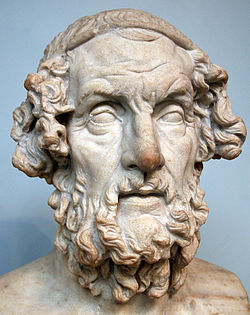Homer Quote
Related Quotes
Call no man lucky until he is dead, but there have been moment of rare satisfaction in the often random and fragmented life of the radical freelance scribbler. I have lived to see Ronald Reagan called...
Christopher Hitchens
Tags:
cold war, colonialism, communism, czechoslovakia, despotism, dictatorship, freedom, greece, journalism, liberation
Sexual frenzy is our compensation for the tedious moments we must suffer in the passage of life. 'Nothing in excess,' professed the ancient Greeks. Why if I spend half the month in healthy scholarship...
Roman Payne
Tags:
ancient greece, ancient greeks, balance, beauties, cycles, europe, full moon, greece, lifestyle, moon
If you are a dreamer, come in,If you are a dreamer, a wisher, a liar,A hope-er, a pray-er, a magic bean buyer...If you're a pretender, come sit by my fireFor we have some flax-golden tales to spin. Co...
Shel Silverstein
Tags:
children books, crete, dreams, greece, happiness, jack r kearns, mrs sjostrom, nostalgia, third grade
About Homer
Homer (; Ancient Greek: Ὅμηρος [hómɛːros], Hómēros; possibly born c. the 8th century BCE) was an Ancient Greek poet who is credited as the author of the Iliad and the Odyssey, two epic poems that are foundational works of ancient Greek literature. Despite doubts about his authorship, Homer is considered one of the most revered and influential authors in history.
The Iliad centers on a quarrel between King Agamemnon and the warrior Achilles during the last year of the Trojan War. The Odyssey chronicles the ten-year journey of Odysseus, king of Ithaca, back to his home after the fall of Troy. The epics depict man's struggle, the Odyssey especially so, as Odysseus perseveres through the punishment of the gods. The poems are in Homeric Greek, also known as Epic Greek, a literary language that shows a mixture of features of the Ionic and Aeolic dialects from different centuries; the predominant influence is Eastern Ionic. Most researchers believe that the poems were originally transmitted orally. Despite being predominantly known for their tragic and serious themes, the Homeric poems also contain instances of comedy and laughter.
The Homeric poems shaped aspects of ancient Greek culture and education, fostering ideals of heroism, glory, and honor. To Plato, Homer was simply the one who "has taught Greece" (τὴν Ἑλλάδα πεπαίδευκεν, tēn Helláda pepaídeuken). In Dante Alighieri's Divine Comedy, Virgil refers to Homer as "Poet sovereign", king of all poets; in the preface to his translation of the Iliad, Alexander Pope acknowledges that Homer has always been considered the "greatest of poets". From antiquity to the present day, Homeric epics have inspired many famous works of literature, music, art, and film.
The question of by whom, when, where, and under what circumstances the Iliad and Odyssey were composed continues to be debated. Scholars generally regard the two poems as the works of separate authors. It is thought that the poems were composed at some point around the late eighth or early seventh century BCE. Many accounts of Homer's life circulated in classical antiquity, the most widespread that he was a blind bard from Ionia, a region of central coastal Anatolia in present-day Turkey. Modern scholars consider these accounts legendary.
The Iliad centers on a quarrel between King Agamemnon and the warrior Achilles during the last year of the Trojan War. The Odyssey chronicles the ten-year journey of Odysseus, king of Ithaca, back to his home after the fall of Troy. The epics depict man's struggle, the Odyssey especially so, as Odysseus perseveres through the punishment of the gods. The poems are in Homeric Greek, also known as Epic Greek, a literary language that shows a mixture of features of the Ionic and Aeolic dialects from different centuries; the predominant influence is Eastern Ionic. Most researchers believe that the poems were originally transmitted orally. Despite being predominantly known for their tragic and serious themes, the Homeric poems also contain instances of comedy and laughter.
The Homeric poems shaped aspects of ancient Greek culture and education, fostering ideals of heroism, glory, and honor. To Plato, Homer was simply the one who "has taught Greece" (τὴν Ἑλλάδα πεπαίδευκεν, tēn Helláda pepaídeuken). In Dante Alighieri's Divine Comedy, Virgil refers to Homer as "Poet sovereign", king of all poets; in the preface to his translation of the Iliad, Alexander Pope acknowledges that Homer has always been considered the "greatest of poets". From antiquity to the present day, Homeric epics have inspired many famous works of literature, music, art, and film.
The question of by whom, when, where, and under what circumstances the Iliad and Odyssey were composed continues to be debated. Scholars generally regard the two poems as the works of separate authors. It is thought that the poems were composed at some point around the late eighth or early seventh century BCE. Many accounts of Homer's life circulated in classical antiquity, the most widespread that he was a blind bard from Ionia, a region of central coastal Anatolia in present-day Turkey. Modern scholars consider these accounts legendary.
